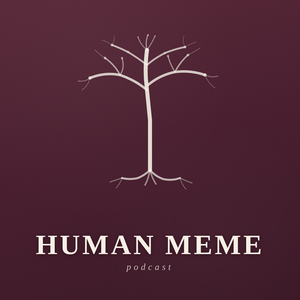For twenty-eight episodes of this podcast, four cat heads floated through the universe looking for their bodies. Captain Whiskerfluff, gray-furred and philosophically inconvenient. Lieutenant Mittens, ginger, who told jokes the way the rest of us breathe. Cookie Kitty, calico, whose opinions about soup could be heard across three star systems. And Skeedootle, who was not a cat at all but a puppy, floppy-eared and enormous-eyed, adopted into a crew of felines because nobody could justify leaving a creature alone in the dark. They lived here. On this podcast. In this voice. In the space between my microphone and your earbuds. Twenty-eight times, we visited them. Twenty-eight times, they argued and wondered and searched and did not find what they were looking for, because the search was the point, and because finishing the search in a podcast that was also about consciousness and memory and what it means to be a living thing in a confusing universe would have felt premature. The Cat Heads existed as audio drama. They were performed. They were voiced. They were heard and then they were gone, living only in the archive, waiting for someone to press play again.


